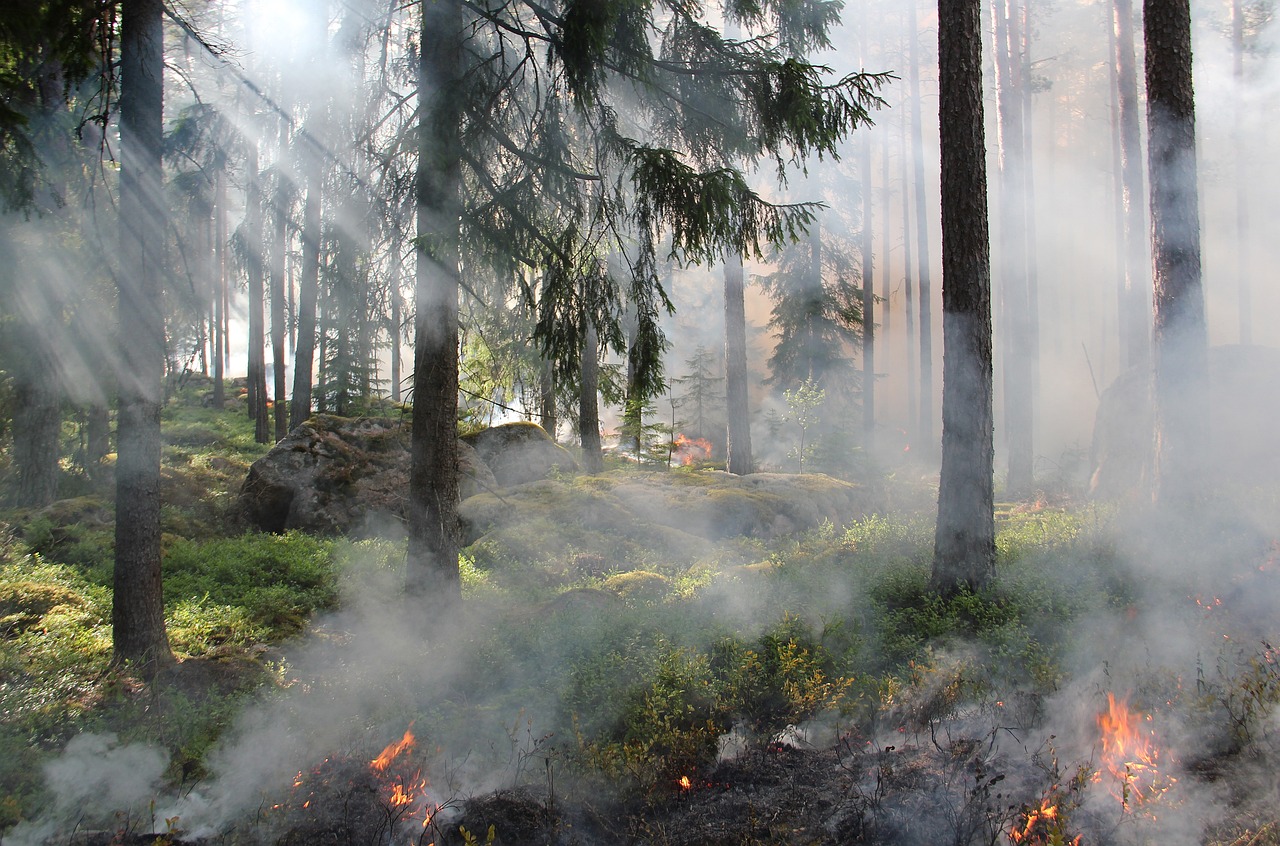
Agni & Green Shoots
Indranil Chakravorty MBE
It is August and somewhere in the world there are huge swathes of forest fires that sweep across large areas burning to cinder flora, fauna, people, their history and heritage. This is also a time for discussion and debate on the truth around climate change and global warming. As in any argument there are believers and detractors and never the twain shall meet- as we seem to have developed hard lines of polarisation and a unique inability to listen to the other argument. Scientific debate, rationalisation and consideration of quality evidence seems to have taken a back seat. Sadly even in the realms of medical science, we witness polarisation and the creeping in of politics driving a stake at the heart of collaboration. The lessons learnt as the world united albeit briefly during and following the pandemic of 2021 seem to have been consigned to the history books. We continue to make the same mistakes as we have for as long as the collective human memory stretches.
In the UK, we see the paradox of a new labour government which brings with it fresh ideas for engagement, public ownership of services, a willingness to listen and value the common man, while at the same time the harsh ground reality of sectarianism, racism, anti-immigration rhetoric leading to lawlessness and a rise in the far right ideology. The attacks on the Police, who unfortunately present the face of government and authority is just the tip of the burning iceberg. There is never smoke without a fire, and this smoke that we see in pockets up and down the country, is fuelled by a deep-seated mistrust that exists in society.
At a recent focus group exploring why equality, diversity and inclusion policies set up by the NHS have failed to move the dial towards social justice, as evident by the stagnation of the results on medical workforce race equality standards, the inequalities experienced by patients from minority groups in health outcomes- the participants recognised that the health service sadly reflects the society it is based in and the community it serves. The assumption appeared to be that we as health service employees are bound by the same prejudices that exist in the societies we come from and therefore it is unsurprising that the treatment of staff and patients will reflect deep divisions, discrimination and bias. There was a sense of educated, helplessness based on the collective experience of having no ‘real’ voice, no leaders who would ‘really’ listen and value their input. A sense of deep injustice mixed with some resilience and resolve to keep fighting and standing up for basic human rights and dignity. Does this have to be the reality of 1.3 million staff in the UK NHS? What is the impact of organisations such as BAPIO, which stands for equality, justice and excellence for all patients and staff in healthcare? How do we know that we are making a difference?
“One swallow does not a summer make, neither does one fine day”, is attributed to Aristotle, the Greek poet, scientist and philosopher in his work ‘Nicomachean Ethics’ written possibly in 340 BC. Perhaps this piece of wisdom is not entirely appropriate for this piece, however it is important to recognise two fundamental truths – (1) that despair and despondency never got anyone anywhere, and that although in its quarter century of existence BAPIO may not have managed to achieve all its lofty goals, but has made a difference and perhaps for the believers amongst us continues to fight for the right to equality and justice for all international medical graduates, people from minority backgrounds and contributes constructively to change that we know will come in the UK health service and society in general. BAPIO continues to do so using its unique adopted stance of being the ‘critical friend’.
The upcoming annual conference in Bristol (20-22 September) promises to be a forum to put our minds together to ‘rebuild the NHS’ from what some politicians describe as ‘14 years of decline’. It is providential that ‘14 years’ has a special significance in the mythological texts that move much of the argument in the Indian subcontinent as ‘Lord Rama’ was in exile for 14 years from his kingdom in Ayodhya, while all the action and adventure unfolded. In the Mahabharata, the Pandavas were similarly exiled for 12 years. So what the mythological texts teach us is that a period of exile is not the end of the world, and that through the suffering that is inevitable, there is good that can and will be achieved as we come into the light. Hence every year the festival of lights brings hope of peace and enlightenment. Diwali this year will be at a time when the new labour government will complete its first 100 days in office and a lot rests on what the country makes of the delivery of their lofty promises. Along with the rest of the nation, we expect a better funded NHS, staff that feel valued and adequately remunerated, systems that deliver the excellence in care that Nye Bevan dreamt for all. In order to achieve this, we need to work collaboratively with people in leadership positions, share our ideas constructively, at least temporarily move away from divisiveness, sectarianism, protectionism and learn again to be kind and helpful which is at the heart of being a health professional.
Let us walk together into a new beginning, rising from the ashes towards the green shoots of an NHS which is fair, just and for all.
